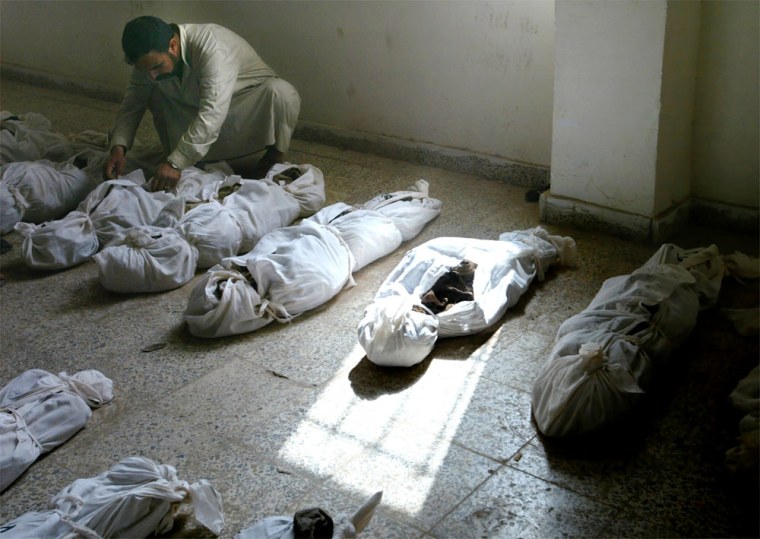Saddam Hussein could be tried “in the next few weeks” and could be executed if convicted, an Iraqi Governing Council member said Monday. Other council members said the televised trial would likely begin later, perhaps by summer.
The trial will begin “very soon, in the next few weeks,” Mouwafak al-Rabii, a Shiite Muslim council member, told The Associated Press.
He and other council members said they were sure the United States would hand Saddam over to the new Iraqi special tribunal for crimes against humanity, but differed on how soon a trial could be mounted against the former dictator.
“I can tell you he is going to be the first,” al-Rabii said.
Other timing scenarios
But Dara Noor al-Din, another council member, said the order of trials would depend on the evidence. “Maybe he will be the first one, maybe he won’t,” he said.
Noor al-Din, a leading Kurdish judge, offered a more conservative estimate for the trial date: “Maybe four to six months.” A third council member, Adnan Pachachi, said he expected the trial to start “sometime in March.”
That would still be close to the July 1 deadline for the U.S.-led occupation authority to hand over sovereignty to a new, transitional Iraqi government. The occupation authority has suspended executions in Iraq, but al-Rabii said it wouldn’t take long for them to be reinstated — especially for Saddam.
“We will get sovereignty on the 30th of June, and I can tell you, he could be executed on the 1st of July,” said al-Rabii, a longtime human rights activist.
He said Saddam would have a fair trial, and that Saddam will have “the right to employ the best lawyers in the world, if he wants.”
All three council members said the trial would be televised.
Lt. Gen. Richardo Sanchez said at a news conference Sunday that the U.S.-led coalition was still deciding what to do with Saddam.
“At this point, that has not been determined, we continue to process Saddam at this point in time and those issues will be resolved in the near future,” Sanchez said.
Crimes since 1968
Saddam was captured Saturday night in a raid by U.S. soldiers in northern Iraq. At least 300,000 people are believed to have been killed during his 23-year presidency, many of them buried in mass graves.
The tribunal will cover crimes committed from July 17, 1968 — the day Saddam’s Baath Party came to power — until May 1, 2003 — the day President Bush declared major hostilities over, said Abdel-Aziz al-Hakim, the current president of the Iraqi Governing Council. Saddam became president in 1979 but wielded vast influence starting from the early 1970s.
The tribunal will try cases stemming from mass executions of Iraqi Kurds in the 1980s, as well as the suppression of uprisings by Kurds and Shiite Muslims soon after the 1991 Gulf War.
Al-Hakim said it would also try cases committed against Iran — with which Iraq fought a bloody 1980-88 war — and against Kuwait, which Iraq invaded in 1990, sparking the Gulf War.
The U.S. occupation authority suspended using the death penalty, and Iraqi officials have said they will decide whether to reinstate it when a transitional government assumes sovereignty as scheduled on July 1.
Prosecutors will use a growing cache of documents seized from the former regime. Evidence also will come from the excavation of some of the 270 mass graves in Iraq that are believed to hold at least 300,000 sets of remains.
